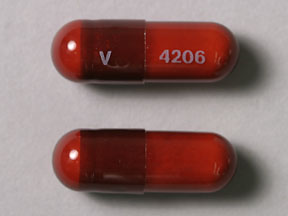Mepergan is a prescription drug used to treat moderate to severe pain. But is it an opiate? In this article, we will explore the properties of Mepergan and its effects on the body, to determine whether it is indeed an opiate or not. Through this analysis, we will examine the similarities and differences between Mepergan and other opiates, in order to gain a better understanding of this powerful drug.

What is Mepergan?
Mepergan is a combination of two medications: meperidine (a synthetic opioid pain reliever) and promethazine (an antihistamine). It is prescribed to treat moderate to severe pain. Mepergan is available in both tablet and capsule form. It is classified as a Schedule II controlled substance, meaning that it has a high potential for abuse and dependence.
Mepergan works by blocking pain signals from reaching the brain and providing sedative effects. The combination of the two medications can also help reduce nausea and vomiting. It is important to note that Mepergan should only be used for a short period of time, as it can be habit-forming.
Is Mepergan an Opiate?
Mepergan contains the opioid meperidine, which is classified as an opiate. Opiates are drugs that are derived from the opium poppy plant and are used to treat pain. As a result, Mepergan is considered an opiate.
However, it is important to note that Mepergan is not the same as other opiates. It is a combination medication that contains an opioid and an antihistamine. This combination may provide different effects than other opiates.
Potential Side Effects of Mepergan
Like all medications, Mepergan can cause side effects. Common side effects include drowsiness, dizziness, nausea, constipation, and headache. More serious side effects include confusion, agitation, seizures, and shallow breathing.
It is important to note that Mepergan can be habit-forming and should only be taken as prescribed. The risk of abuse and addiction increases with higher doses and longer treatment. People with a history of substance abuse should use Mepergan with caution.
Risks of Mepergan Abuse
Mepergan is a powerful medication and should only be used as directed by a healthcare provider. Misusing or abusing Mepergan can lead to serious health risks. These include slowed or shallow breathing, seizures, coma, and death.
People who abuse Mepergan may also experience withdrawal symptoms when they stop using the drug. Common withdrawal symptoms include agitation, anxiety, insomnia, nausea, and sweating. It is important to note that withdrawal symptoms can be dangerous and should be managed by a healthcare provider.
Interactions with Other Drugs
Mepergan can interact with other medications, including alcohol and other drugs. These interactions can increase the risk of serious side effects, such as slowed or shallow breathing, coma, and death.
It is important to tell your healthcare provider about all medications and supplements that you are taking. This includes prescription, over-the-counter, and herbal medications.
Conclusion
Mepergan is a combination medication that contains an opioid and an antihistamine. It is classified as an opiate and is used to treat moderate to severe pain. However, it is important to note that Mepergan can be habit-forming and should only be used as directed by a healthcare provider. Misusing or abusing Mepergan can lead to serious health risks, including slowed or shallow breathing, seizures, coma, and death. It is important to tell your healthcare provider about all medications and supplements that you are taking.
Few Frequently Asked Questions
What is Mepergan?
Mepergan is a medication that contains a combination of two active ingredients: meperidine and promethazine. Meperidine is an opioid analgesic, while promethazine is an antihistamine and sedative. It is used to treat moderate to moderately severe pain and to reduce nausea and vomiting.
Is Mepergan an Opiate?
Yes, Mepergan is an opiate. Meperidine, one of the active ingredients in Mepergan, is a synthetic opioid that acts on the same brain receptors as other opioids, such as morphine and codeine. It is a powerful pain reliever and can be habit-forming.
What are the Side Effects of Mepergan?
Common side effects of Mepergan include drowsiness, dizziness, headache, constipation, nausea, and vomiting. It can also cause more serious side effects such as difficulty breathing, chest pain, and hallucinations. It can also cause an allergic reaction in some people.
Who Should Not Take Mepergan?
Mepergan is not recommended for children under 12 years of age. It is also not recommended for people who have a history of alcohol or drug abuse, people with a history of breathing problems, and people who are taking other narcotic medications.
How Should Mepergan Be Taken?
Mepergan should be taken as directed by your doctor. It should be taken with water, with or without food. It should not be taken with alcohol or other drugs. It should not be taken more than four times a day.
What Should I Do If I Miss a Dose of Mepergan?
If you miss a dose of Mepergan, take it as soon as you remember. However, if it is almost time for your next dose, skip the missed dose and continue with your regular dosing schedule. Do not take two doses at once.
This Is What Happens to Your Brain on Opioids | Short Film Showcase
Overall, Mepergan is an opiate, as it is a synthetic opioid that has similar effects to morphine and other natural opiates. However, due to its synthetic nature, it can be more dangerous and addictive than other opiates. Therefore, it is important to take Mepergan only as prescribed and to be aware of the potential risks of taking this medication.
